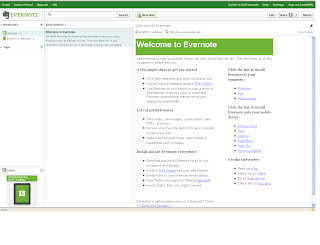 This is a "catch up" week, with no new Things. Therefore you are getting a between-things reflection: what does CPD mean when you are no longer a New Thing, but an Older Thing? What does CPD mean, later on in your career?
This is a "catch up" week, with no new Things. Therefore you are getting a between-things reflection: what does CPD mean when you are no longer a New Thing, but an Older Thing? What does CPD mean, later on in your career?This will vary depending on how you think about your career. I do still want my career to develop (so that's the perspective I'm writing from), but at 59 (argh), some things are different from when I was a new professional. By the way, I'm really interested to know if there are any more "experienced" CPD23ers out there, so please do add your comments if there are!
Some things are the same. Virtual networks, face-to-face networks, getting involved, learning from people you work with, reading, doing ... these are things which are useful, lifelong. I've been trying to think what is most different for my CPD as a "later career" person and here are some points.
- Doing CPD outside the Library and information field. If your career has a definite upwards or sideways path, you will end up needing to do your CPD in some other field, such as management, marketing, or e-learning. This means getting to know about a whole new set of qualifications, associations, networks, journals etc. If you are from a library/information background, then I think you are at an advantage in terms of finding out what these are (we have skills). Actually getting into the networks etc. may be more difficult, because (in my experience) not every profession is so into sharing and networking as librarians are. At that point you may have to make hard choices about whether you have the time to stay involved in library networks, or just devote your energies to ones which are more relevant to your current job.
- Making sure you don't slide into unconcious incompetence. Ages ago I learnt about the "4 stages of comptence"; unconscious incompetence (you don't even realise you are rubbish at X), conscious incompetence (you realise you are rubbish, but it still doesn't stop you being rubbish); conscious competence (if you really concentrate, you stop being rubbish at X); unconscious competence (you are brilliant at X without even having to think about it). The danger is that, because you aren't thinking about it, you unwittingly slide round into unconscious incompetence again. If X is a practical skill (e.g. searching Google; using the finance system) then it is easier for you to spot problems, and to set up mechanisms to keep yourself updated.
However for important but more intangible things like "managing", "negotiating" or "teaching" it is easy to slip into comfortable habits. Those around you may find your mildly incompetent habits comfortable too, or at least not so uncomfortable that they are going to tackle you about them, even in a staff review. So it's important to force yourself to review these broader and more challenging areas of confidence: for doing things like this CPD23, by signing up for courses that help you self-evaluate, by starting a peer-review scheme, or simply having some good friends who are also willing to be critical friends.
- Being able to tap into your own history. By this I mean your own experiences, previous networks, and so on. Sometimes you can get a head start on doing new things, by remembering when you tackled a similar thing in the past and obviously the older you get, the more experience you have to draw on.
- Continuing to make your job part of your CPD. In other words: going for new and different opportunities that will force you to reassess what you are doing and learn new things.
- Being aware that your idea of CPD may change over time. Eva Hornung researched the ways in which one person librarians (OPLs) in Ireland experience CPD, for her PhD (OPLs are people who are the only professional librarian in an organisation and she's an OPL librarian herself). She found there were 5 ways in which people conceived of CPD: Upskilling for the sake of the organisation/library service (a service orientation); Developing as a professional librarian (an LIS profession orientation); Helping you to do all the jobs an OPL does (OPL orientation); To do things in a better way when you come back to the workplace (personal orientation) and To develop as a human being (lifelong learning orientation). Eva explains this in a powerpoint here and she also wrote an article which you can find here (reference is: Hornung, E. (2012) "One- Person librarians and Continuing Professional Development: how the LAI [Library Association of Ireland] can make a difference." An Leabharlann: The Irish Library, 21 (1), 15-19.)
I am a bit biased as I supervised her PhD, but I think these categories apply more widely, and I've found them useful when examining what I want to do and why I want to do it. I can identify with all those categories, but at some points of my career I was more focused on "upskilling" and "Developing as a professional", and I think over time the lifelong learning orientation has taken over more.
I'd be interested to know if other people find this an interesting approach.












